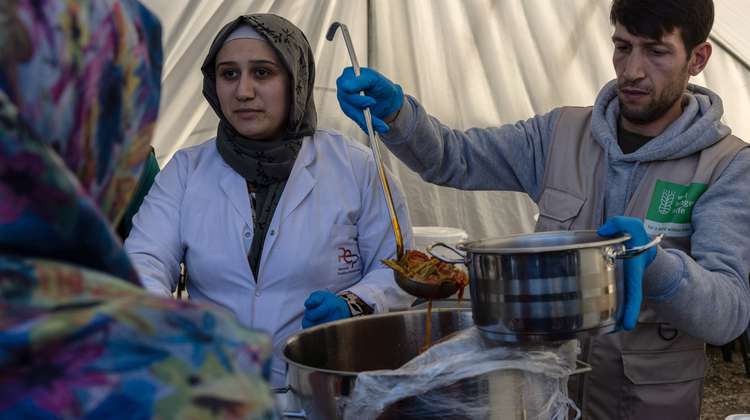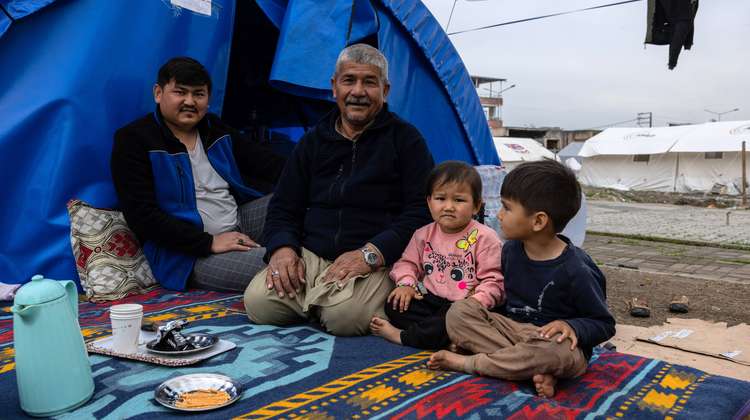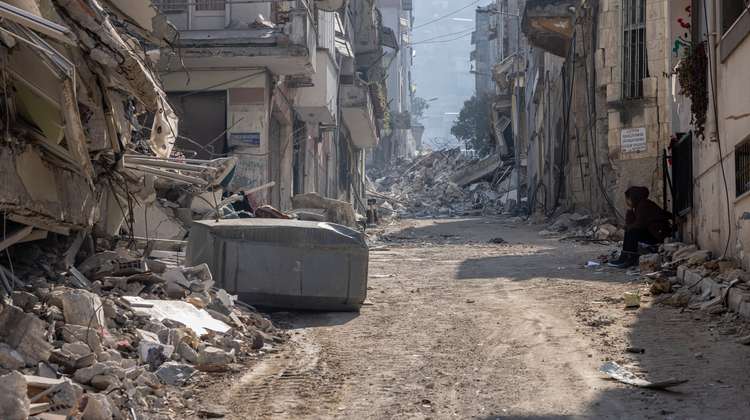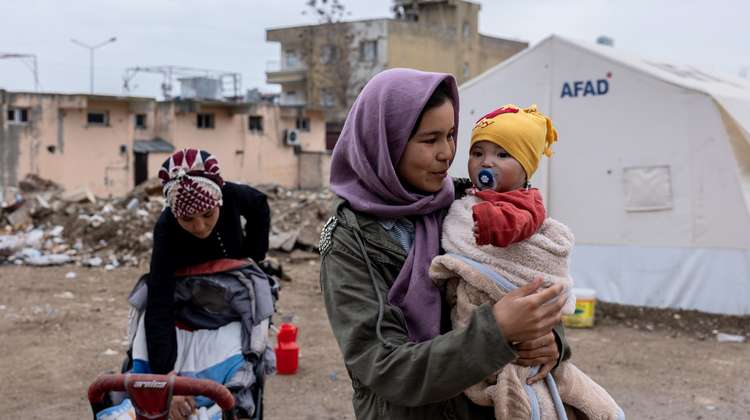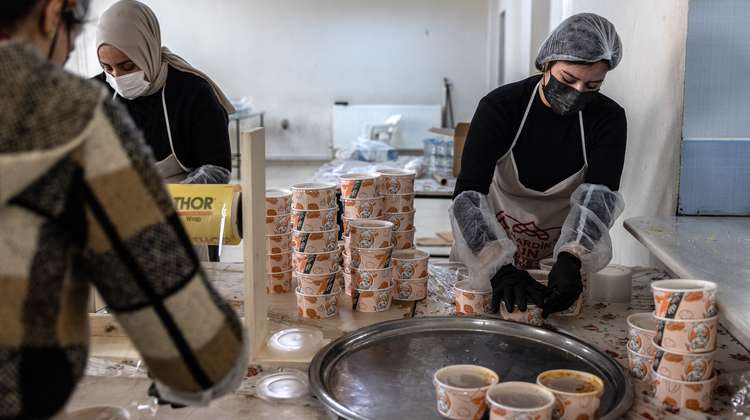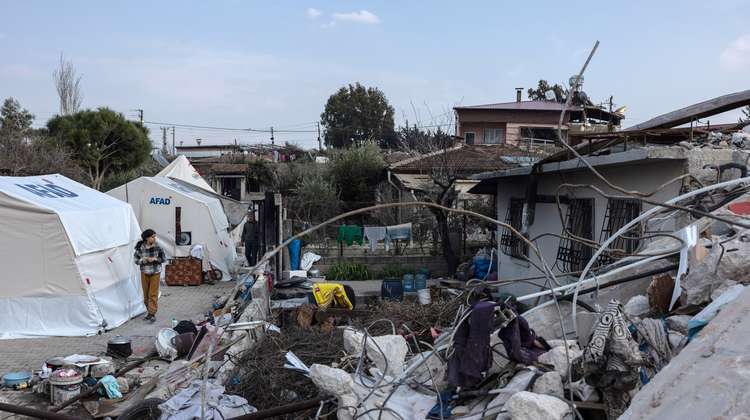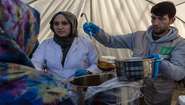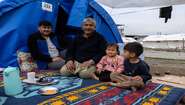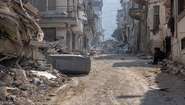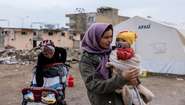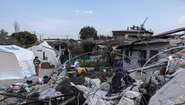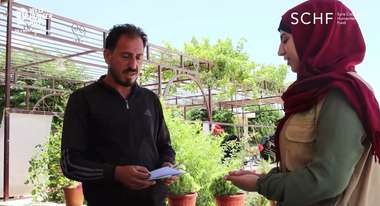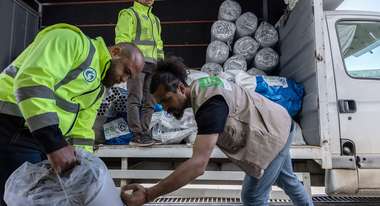One Year After Earthquake in Syria and Türkiye
Mud, cold, and hunger: the humanitarian disaster in north-western syria continues
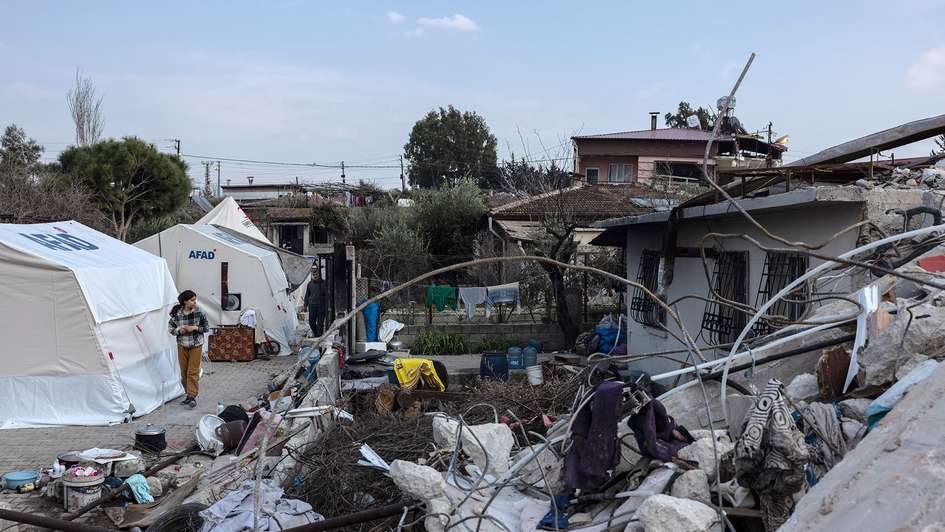
Bonn/Berlin, 2024-02-01. One year after a devastating earthquake struck south-eastern Türkiye and north-western Syria, millions of people are still in difficult circumstances. The natural disaster claimed over 56,000 lives in the two countries, and far more than 20 million people were affected. The destruction was immense. Rebuilding efforts continue in Türkiye, with container homes offering shelter while houses are made liveable. In several regions, access to drinking water, sanitation facilities, and key health services remains limited.
By contrast, most families in north-western Syria are still living in tents or the ruins of their houses. Mud, cold, and a sense of having been abandoned permeate their lives.
“Even before the earthquake, around 80 percent of the people living in north-western Syria were already forced to depend on humanitarian aid as a result of years of civil war. For them, the earthquake and the flooding that followed due to torrential rain made a bad situation even worse,” states Mathias Mogge, the secretary general of Welthungerhilfe, adding, “Camp residents report that jobs are scarce and that they have no way of earning enough money to pay for proper meals, heating fuel in the winter, and school expenses for their children. Due to rising food prices, many families are living from hand to mouth and see little hope on the horizon. With so many crises and conflicts taking place throughout the world, people in north-western Syria feel invisible and on their own. After nearly 13 years of war and displacement, they yearn for peace and security in their lives.”
Welthungerhilfe was already active in the border region between Syria and Türkiye when the earthquake caused major devastation there. Thanks to the great solidarity shown by people in Germany, the aid organization was able to provide emergency assistance immediately after the earthquake struck, receiving around EUR 10 million in private donations and EUR 8.5 million in public grants, including from the German Federal Foreign Office and the EU.
“We will continue to stand by the people here. However, they urgently need more security, more funding, more international commitment, and real opportunities, especially in north-western Syria. We cannot abandon them,” urges Mathias Mogge.
Mathias Mogge, our secretary general, is available for interviews in German. Roxana Romanica is available for interviews in English; as a head of programme in our Türkiye/Syria country office, she visited a refugee camp in Jindires, Afrin District, in north-western Syria two weeks ago.
Press images for download
Welthungerhilfe is one of the largest private aid organizations in Germany and has no political or religious affiliations. It is fighting for “Zero Hunger by 2030”. Since its inception, it has provided funding of EUR 4.75 billion for more than 11,498 overseas projects in 72 countries. Welthungerhilfe follows the principle of supporting people in realising their rights and sustainably improving their living conditions, which it implements with measures ranging from rapid disaster relief to rehabilitation to long-term development co-operation projects with national and international partner organizations.
Terms of use for press photos: Please note that images provided may only be used in context with Welthungerhilfe and may not be passed on to third parties. Images must be credited with "photographer"/Welthungerhilfe. No long-term archiving. Please delete images after use.





